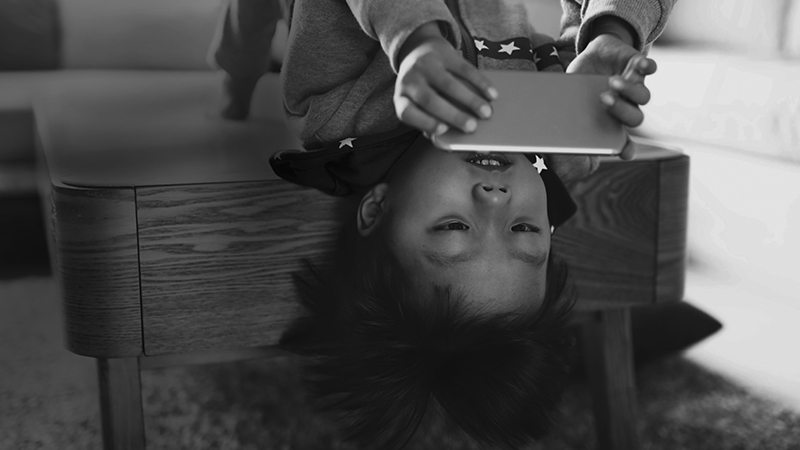Location tracking instead of house arrest: the world after Corona
Wars and crises change the world as we know it. Since a virus recognizes no borders, does it reveal our own borders as a society today? Our interview with Prof. Hans-Joachim Voth, an economic historian at the University of Zurich, brings the future outlook into sharper focus by looking at the past – and across cultural divisions.

Prof. Hans-Joachim Voth has made a name for himself with publications such as "The Global Transformation of Time: 1870-1950" (Harvard University Press) as well as his research on the war economy and the volatility of the capital markets.
An interview with economic historian Hans-Joachim Voth
Professor Voth, regardless how long the Coronavirus pandemic goes on, will the post-virus world be different than the world before the crisis? Must it be different?
We are certainly going to have to rethink the limits of globalization. Mobility is so high today that any virus with an incubation period of a few days can have consequences that are incalculable. The only thing that can help against one is a virtual plague wall – because in the early stages, actual medical treatment of the disease itself is lacking. Historically, this was a wall built around infected cities, and its effectiveness in blocking the spread of disease was defended at all costs – even including the order to shoot anyone violating the blockade.
What could such a “plague wall” look like today?
In just the same way as Europe quite effectively protected itself against the plague after the Middle Ages by establishing quarantines, modern countries will manage to do it, too. Taiwan, Singapore and South Korea are leading the way.
A virtual plague wall would have to be based primarily on cell phone data. It would automatically inform anyone in contact with infected persons (even retrospectively), and they would then have to be quarantined. People who have had contact with infected persons would no longer be allowed to take the subway, fly or walk to the corner café. Using mobile phone location data this way, as Singapore and South Korea are doing, would be essential in building a “virtual plague wall”. Any functioning government can do this as long as the issue is taken seriously. You can avoid putting the entire population under house arrest this way, and in its place set up a system sacrificing a little data protection but meeting specifically tailored isolation requirements. This would also allow much faster implementation of contagion prevention measures. As early as December, Taiwan went to the highest alarm level, while we were all heading off on our skiing vacations, and Chinese people from Wuhan were free to travel here without any checks or tests whatsoever. Taiwan had already required that all travelers report where they had been previously, and they quickly instituted testing – in other words, they prioritized the protection of the public with a lot aggressive measures.
Even though Taiwan is very closely linked to China, the number of infections and deaths caused by the Coronavirus there have remained surprisingly low. This crisis is our last wake-up call – following the last three or four that we slept through. With effective, intelligent measures such as a virtual plague wall, we would be able to tackle the greatest danger of a networked world - a new pandemic as contagious as Corona, but as deadly as Ebola. Otherwise we are likely to suffer the fate of the Roman Empire, which never recovered from the plague under Justinian.
What about our social life – will we deal with each other differently? Will there be more solidarity and less hedonism?
Observing wartime behavior, for example, you see again and again that people who realize how much they depend on others behave in a more pro-social way. With the Coronavirus, though, this is not the case; many more people got infected because at the time when the threat already had to have been clear to everyone, people still weren’t taking the correct steps; they kept going out to clubs and to stadiums and so on. That doesn't say good things about our common sense and social responsibility.
Will more and more core functions be brought back into government control? Is the “strong state” making a comeback?
It is likely that in the near future we will take the risk of granting greater control to government. First of all, it’s clear that only the nation-state is really capable of taking effective action in times of crisis (as we already observed in 2008). If you look at Europe, the World Health Organization, the G7 – no one is coordinating and intervening effectively except for nation-states or countries based on a federal system – i.e. countries that are really sovereign. Further, the ongoing dissipation of government influence in many areas – a process that’s been going on for decades – will shift into reverse, because disease prevention, providing intensive care facilities, border protection, the capacity to organize bailouts for the economy – all these things can only be done by a powerful government.
Is the crisis revealing the downside of individualism?
There is this idea that individualistic societies in the West are unable to cope very well with such a crisis, and that it takes the culture of the Far East – of China, Singapore, Hong Kong, Korea – to tackle such a threat quickly and come to grips with it successfully. In Europe, it took thousands of people to fall ill before countries were moved to implement the restrictions that China had already put in place when it had only registered 100 cases. Hubei had already been shut down for quite some time while Spain was celebrating International Women's Day with mass demonstrations, people were going to cafés in Paris and in Berlin the subways were packed. For sure, we are going to have to reconsider this kind of thing. However, existential crises like the large-scale wars that Western democracies have entered have shown that once these countries start to tackle a problem, they can do it very well. It just takes a little longer before everybody is on board – but when they do get on board, you can accomplish a lot; you can ask people to make a lot of sacrifices.
Will we see more nationalism? Will globalization recede? Will there be less freedom of movement?
From an economic point of view, globalization is certainly going to suffer. However, trading in products is essential if you want the benefits that accrue from an exchange of goods. And trade only rarely leads to pandemics. What we can and should definitely rethink is our great freedom of travel. Weekends in Paris and Tokyo, a shopping trip to New York or London – is that really necessary? And it is incomprehensible why every country in the world welcomes people coming from countries where new viruses are repeatedly transmitted from animals to humans due to their eating habits and lifestyle – with almost no border control and without any quarantine required. The next virus could be as contagious as the Coronavirus and as lethal as Ebola. In this area, it’s possible to blaze a new trail, for example by erecting “virtual plague walls”.
Will a “post-Corona rebound” succeed?
Humanity still knows as much as we did four weeks ago; factories are still standing and people's needs also still exist. So as long as companies don't go bankrupt by the thousands and massive disruptions occur, there’s no reason why we shouldn’t be able to get back to the same level of economic performance soon after the end of the crisis. Having said that, though, it’s going to take a massive political effort to retain all the organizational skills and know-how that is woven into the fabric of the companies affected. This is an important aspect of any bank bailout: You cannot just take all the expertise that’s been accumulated over years and decades, based on the tried and tested interaction of hundreds or thousands of people and the successful connections between companies and their customers – and throw it out the window.
It’s also naturally unclear when we can end the shutdown – whether it will take two months or more like 12 to 18 months before a vaccine is created and medications get onto the market. Soon another discussion is going to start, one that says: “How long do we want to tolerate economic collapse in order to protect the old and the weak? How long can we afford to lose billions in order to save a few thousand lives?” Nobody wants to make this calculation, but a permanent collapse of the economy, anarchy on the streets, and a world that looks like a Mad Max movie are not acceptable alternatives, either.
Prof. Hans-Joachim Voth is UBS Foundation Professor of Macroeconomics and Financial Markets at the Department of Economics at the University of Zurich. Among other things, he conducts research for the Swiss National Science Foundation as part of the project “Wages and Veteran Status: The Greatest Draft Lottery in History”. Voth has been a joint managing editor at the “Economic Journal” since 2015.






